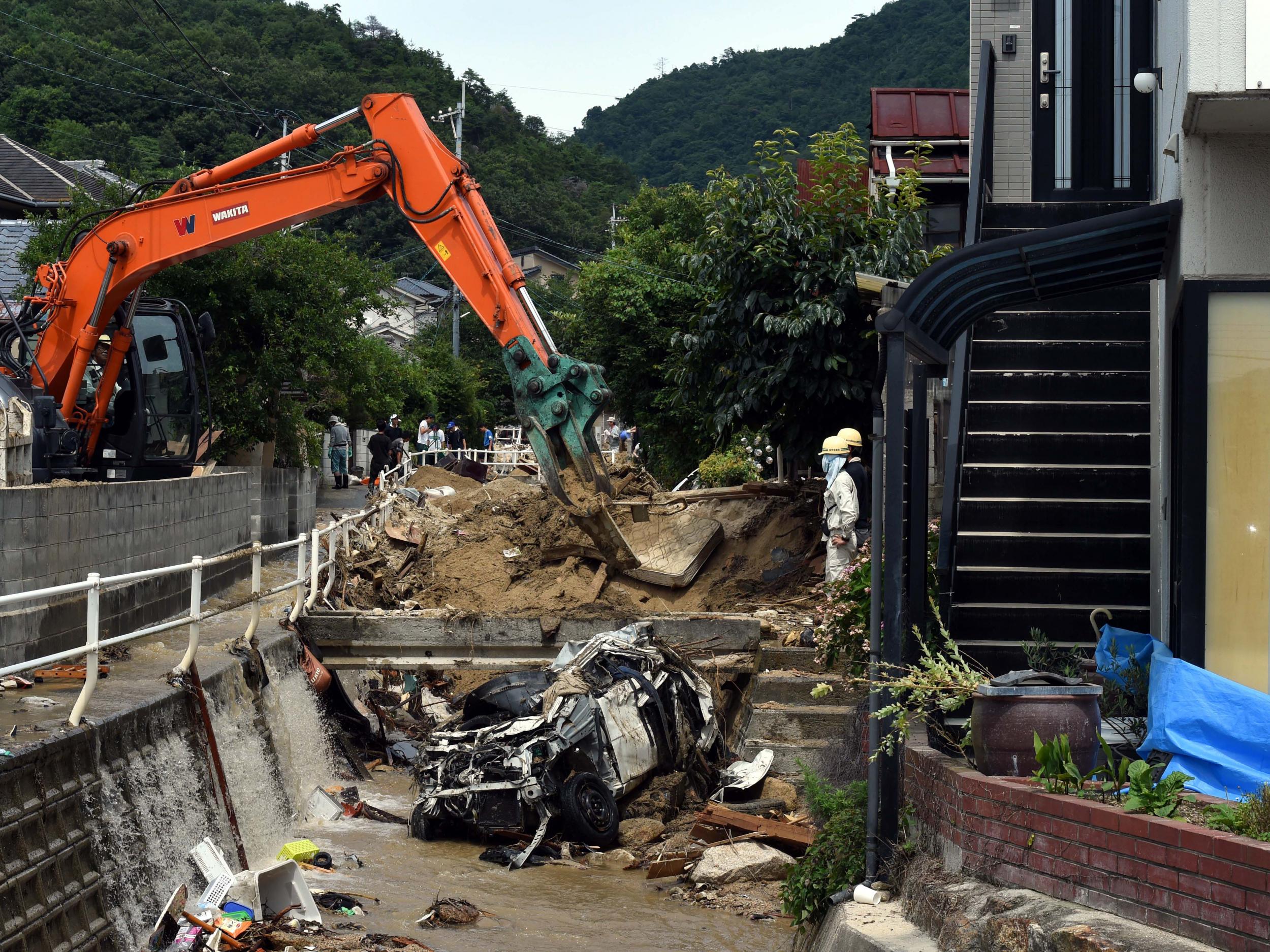Japan floods: Death toll nears 200 as intense heat brings threat of disease during clear up
Disasters set off by torrential rains have become more frequent in Japan due to global warming, experts suggest

Your support helps us to tell the story
From reproductive rights to climate change to Big Tech, The Independent is on the ground when the story is developing. Whether it's investigating the financials of Elon Musk's pro-Trump PAC or producing our latest documentary, 'The A Word', which shines a light on the American women fighting for reproductive rights, we know how important it is to parse out the facts from the messaging.
At such a critical moment in US history, we need reporters on the ground. Your donation allows us to keep sending journalists to speak to both sides of the story.
The Independent is trusted by Americans across the entire political spectrum. And unlike many other quality news outlets, we choose not to lock Americans out of our reporting and analysis with paywalls. We believe quality journalism should be available to everyone, paid for by those who can afford it.
Your support makes all the difference.Intense heat and water shortages raised fears of disease outbreaks in flood-hit western Japan on Thursday as the death toll from the worst weather disaster in 36 years neared 200.
More than 200,000 households had no water a week after torrential rains caused floods and set off landslides across western Japan, bringing death and destruction to decades-old communities built on mountain slopes and flood plains.
The death toll rose to 195, with several dozen people still missing, the government said on Thursday.
With daily temperatures above 30C and high humidity, life in school gymnasiums and other evacuation centres, where families spread out on mats on the floors, began to take a toll.
Television footage showed one elderly woman trying to sleep by kneeling with her upper body on the seat of a folding chair, arms over her eyes to keep out the light.
With few portable fans in the evacuation centres, many survivors tried to cool themselves with paper fans.
The limited water supply meant that people are not getting enough fluids and in danger of suffering from heatstroke, authorities said. People are also reluctant to use what water they do have to wash their hands, raising fears of epidemics.
"Without water, we can't really clean anything up. We can't wash anything," one man told NHK television.
The government has sent water trucks to the disaster area, but supplies remain limited.
More than 70,000 military, police and firefighters toiled through the debris in a grim search for the missing.
Some teams shovelled dirt into sacks and piled the bags into trucks. Others used diggers and chainsaws to work through landslides and splintered buildings.
Many areas were buried deep in mud that smelled like sewage and had hardened in the heat, making the search more difficult.
Disasters set off by torrential rains have become more frequent in Japan, perhaps due to global warming, experts say. Dozens of people died after similar rains caused flooding around the same time last year.
"It's an undeniable fact that this sort of disaster due to torrential, unprecedented rain is becoming more frequent in recent years," chief cabinet secretary Yoshihide Suga said at a news conference in Tokyo.
"Preserving the lives and peaceful existence of our citizens is the government's biggest duty. We recognise that there's a need to look into steps we can take to reduce the damage from disasters like this even a little bit," he added.
Reuters
Join our commenting forum
Join thought-provoking conversations, follow other Independent readers and see their replies
Comments